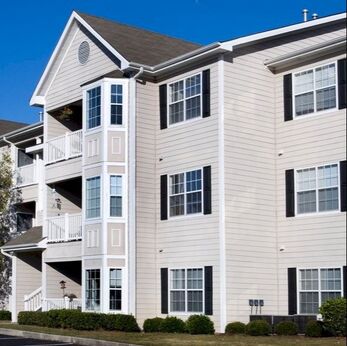Navigating the Complex Terrain of Compliance Guidelines for Cyber Security in Multi-Unit Units to Ensure Occupant Safety and Information Protection
Wiki Article
In the current world, numerous individuals live in multi-dwelling units, including flat complexes and condominiums. These locations often share common infrastructures for internet and other amenities. Although this setup can be convenient, it also raises important concerns about system security and regulatory standards. Guaranteeing the security of tenants and safeguarding their data is crucial. This piece will explore the intricate environment of regulatory standards for network safety in multi-unit units, emphasizing how these standards assist keep residents secure and secure.
One of the primary compliance guidelines that apply to network safety is the General Information Privacy Regulation (GDPR). This law is intended to safeguard personal information and confidentiality for individuals within the European Community. While it primarily applies to companies operating in Europe, its principles can influence procedures in other regions as also. For multi-dwelling units, adhering to GDPR requires establishing robust data safeguarding protocols. This includes making sure that tenants' individual information is gathered, stored, and handled safely. By adhering to these guidelines, property managers can assist build confidence with tenants and ensure their data is protected from illicit access.

Another important guideline is the Healthcare Insurance Flexibility and Responsibility Law (HIPAA), which safeguards sensitive healthcare information in the healthcare industry. In multi-unit units, especially those that offer medical services or have residents with specific health requirements, compliance with HIPAA is crucial. This requires that any medical data collected from tenants must be kept confidential and protected. Property administrators must make sure that their network systems are configured to avoid information leaks and unauthorized access. By doing so, they not only adhere with regulatory obligations but also promote a safe living space for all tenants.
Alongside GDPR and HIPAA, the Payment Payment Sector Data Security Standard (PCI DSS) is another vital compliance guideline. This guideline is especially relevant for multi-dwelling units that process debit card transactions for lease or services. PCI DSS outlines security protocols that must be implemented to protect cardholder data. This includes securing confidential data and frequently monitoring network security. By following PCI DSS guidelines, building administrators can minimize the risk of data leaks and protect tenants' financial information, which is vital for maintaining their trust and security.
Ultimately, it is crucial for multi-unit buildings to remain informed on local and national regulations regarding system safety. Regulations and guidelines can evolve, and remaining aware is essential for compliance. Property managers should regularly review their security policies and practices to ensure informative post they meet current requirements. This proactive strategy not only helps in maintaining compliance but also enhances the overall security of the network. By prioritizing resident safety and data safeguarding, multi-unit units can establish a secure living environment that fosters trust and peace of mind among residents.
In conclusion, navigating the complex landscape of compliance standards for network security in multi-dwelling units is essential for ensuring resident safety and data protection. By understanding and applying guidelines like GDPR, HIPAA, and PCI DSS, building administrators can establish a safe environment for their residents. Staying informed about regional laws and frequently assessing safety protocols further improves this dedication to safety. Ultimately, a strong focus on compliance not only protects tenants but also fosters a feeling of belonging and confidence among multi-unit units.